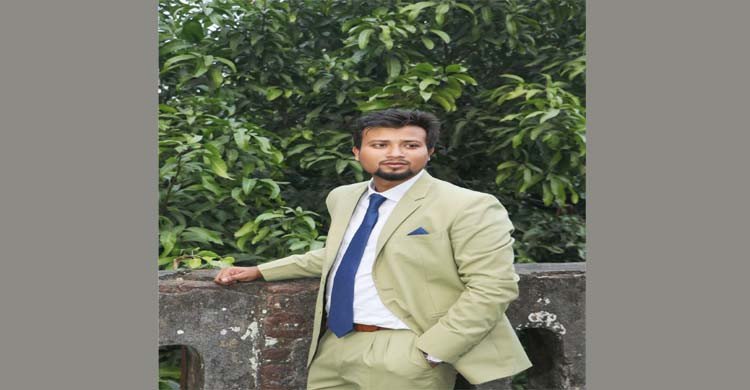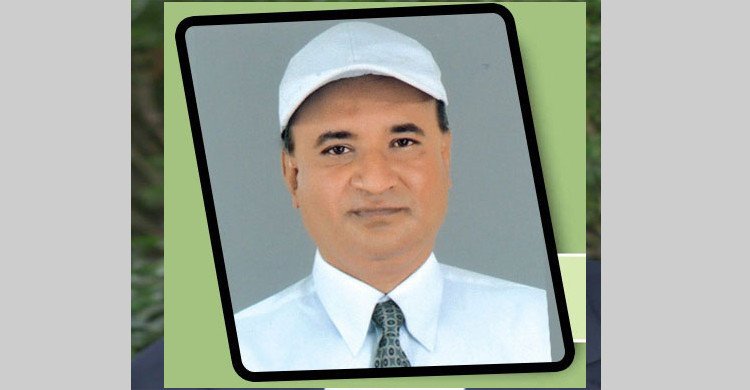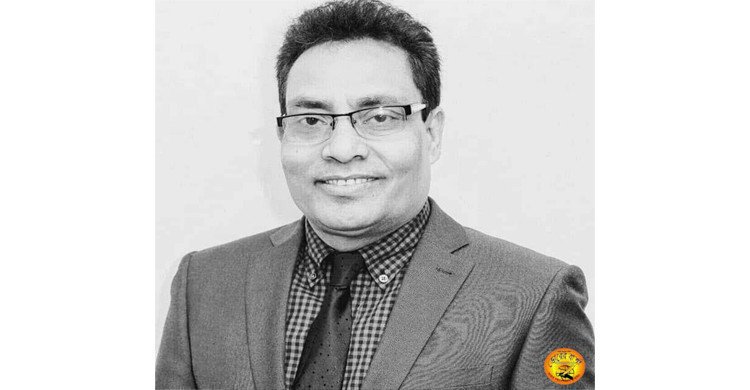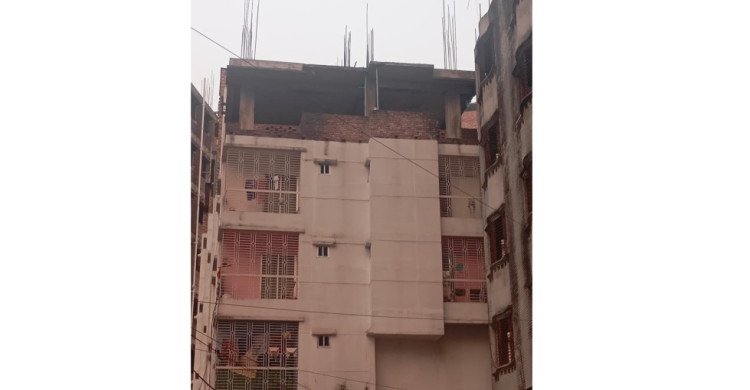Engineering Sustainability with Intelligence: Md Aliahsan Bappy’s Global Research Footprint from Rajshahi to Texas

National Desk
১৯-৬-২০২৫ রাত ১০:৪৪
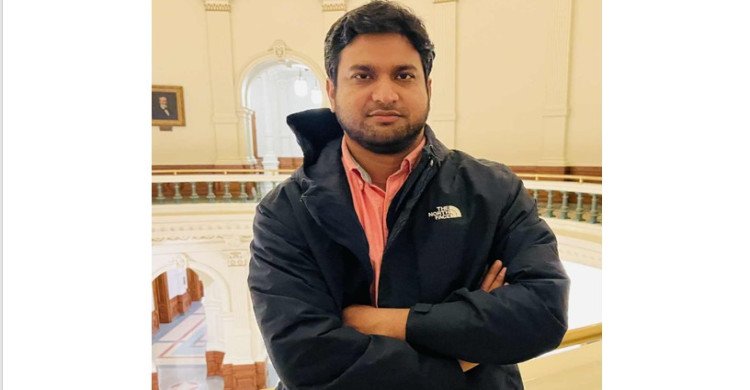
Engineering Sustainability with Intelligence: Md Aliahsan Bappy’s Global Research Footprint from Rajshahi to Texas
In the quiet town of Rajshahi, a young boy once dismantled household gadgets out of curiosity. Today, that boy is Md Aliahsan Bappy—now a mechanical engineering graduate student at Lamar University, Texas—who is leading innovative research on energy efficiency, machine learning integration, and sustainable engineering systems.
Bappy’s academic and research career is defined by his mission to blend traditional engineering wisdom with next-generation technologies. His current work focuses on the integration of artificial intelligence into mechanical systems, smart solar cell modeling, and green nanomaterials, drawing global attention in the fields of renewable energy, mechatronics, and manufacturing intelligence. “I believe engineering should serve both human need and environmental balance,” Bappy told this reporter in an exclusive interview. “My research revolves around making machines smarter, energy cleaner, and processes more sustainable—especially in contexts where resources are limited.”
Bappy's exploration into machine learning-guided optimization of data collection methods in mechanical systems represents a shift toward predictive, adaptive infrastructure. “We are no longer relying on reactive maintenance,” he explained. “With data-driven models, systems can forecast failures and optimize performance autonomously.” His solar energy projects are equally forward-looking. Using tools like SCAPS-1D and DFT simulations, Bappy and his collaborators are developing hybrid perovskite solar cells that aim to surpass 29% efficiency. His recent simulation studies introduce novel materials like Ca₃AsI₃ and Ba₃SbI₃, which could revolutionize affordable solar panel design.
“I come from a country where frequent power outages were once the norm,” Bappy recalled. “That memory fuels my passion for decentralized, efficient solar technologies that can serve not just urban, but also rural communities worldwide.” His other research projects span diverse domains—from modeling water quality in the Buriganga River using the QUAL2K tool to co-authoring studies on biodegradable nanomaterials for tissue engineering. His approach is multidisciplinary yet deeply rooted in real-world applicability.
As a student mentor and lab leader, Bappy also guides undergraduate researchers at Lamar University, where he works under the supervision of top faculty in both energy systems and environmental modeling. “Teaching keeps me grounded,” he said with a smile. “It reminds me that science isn’t just about discovery—it’s about sharing that discovery for the benefit of others.” Looking ahead, Bappy hopes to develop open-source AI-powered diagnostic systems for use in remote manufacturing hubs and modular renewable energy solutions that require minimal maintenance. “Low-cost innovation is what excites me,” he said. “If it can be replicated in a Bangladeshi village or an Alaskan outpost, then I know it’s truly impactful.” When asked what advice he would give to aspiring engineers in Bangladesh, Bappy responded, “Don’t wait for perfect lab conditions. Learn from your environment. Build your own tools. Use data not just to optimize machines—but to improve lives.”
Md Aliahsan Bappy’s journey is a remarkable testament to the evolving role of South Asian talent in global innovation. Grounded in humility, propelled by purpose, and equipped with an unwavering curiosity, he represents a new generation of engineers who are not only imagining the future but engineering it—sustainably, intelligently, and inclusively.
National Desk
১৯-৬-২০২৫ রাত ১০:৪৪

In the quiet town of Rajshahi, a young boy once dismantled household gadgets out of curiosity. Today, that boy is Md Aliahsan Bappy—now a mechanical engineering graduate student at Lamar University, Texas—who is leading innovative research on energy efficiency, machine learning integration, and sustainable engineering systems.
Bappy’s academic and research career is defined by his mission to blend traditional engineering wisdom with next-generation technologies. His current work focuses on the integration of artificial intelligence into mechanical systems, smart solar cell modeling, and green nanomaterials, drawing global attention in the fields of renewable energy, mechatronics, and manufacturing intelligence. “I believe engineering should serve both human need and environmental balance,” Bappy told this reporter in an exclusive interview. “My research revolves around making machines smarter, energy cleaner, and processes more sustainable—especially in contexts where resources are limited.”
Bappy's exploration into machine learning-guided optimization of data collection methods in mechanical systems represents a shift toward predictive, adaptive infrastructure. “We are no longer relying on reactive maintenance,” he explained. “With data-driven models, systems can forecast failures and optimize performance autonomously.” His solar energy projects are equally forward-looking. Using tools like SCAPS-1D and DFT simulations, Bappy and his collaborators are developing hybrid perovskite solar cells that aim to surpass 29% efficiency. His recent simulation studies introduce novel materials like Ca₃AsI₃ and Ba₃SbI₃, which could revolutionize affordable solar panel design.
“I come from a country where frequent power outages were once the norm,” Bappy recalled. “That memory fuels my passion for decentralized, efficient solar technologies that can serve not just urban, but also rural communities worldwide.” His other research projects span diverse domains—from modeling water quality in the Buriganga River using the QUAL2K tool to co-authoring studies on biodegradable nanomaterials for tissue engineering. His approach is multidisciplinary yet deeply rooted in real-world applicability.
As a student mentor and lab leader, Bappy also guides undergraduate researchers at Lamar University, where he works under the supervision of top faculty in both energy systems and environmental modeling. “Teaching keeps me grounded,” he said with a smile. “It reminds me that science isn’t just about discovery—it’s about sharing that discovery for the benefit of others.” Looking ahead, Bappy hopes to develop open-source AI-powered diagnostic systems for use in remote manufacturing hubs and modular renewable energy solutions that require minimal maintenance. “Low-cost innovation is what excites me,” he said. “If it can be replicated in a Bangladeshi village or an Alaskan outpost, then I know it’s truly impactful.” When asked what advice he would give to aspiring engineers in Bangladesh, Bappy responded, “Don’t wait for perfect lab conditions. Learn from your environment. Build your own tools. Use data not just to optimize machines—but to improve lives.”
Md Aliahsan Bappy’s journey is a remarkable testament to the evolving role of South Asian talent in global innovation. Grounded in humility, propelled by purpose, and equipped with an unwavering curiosity, he represents a new generation of engineers who are not only imagining the future but engineering it—sustainably, intelligently, and inclusively.
